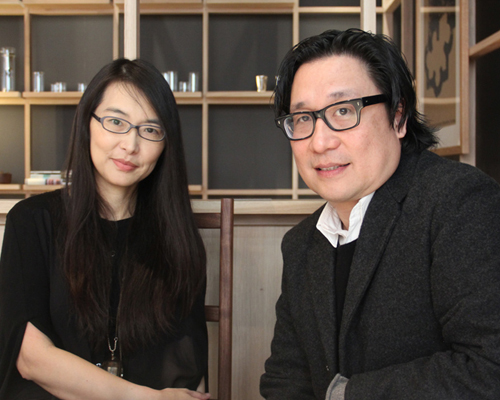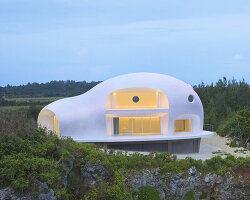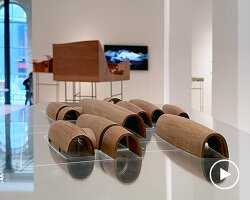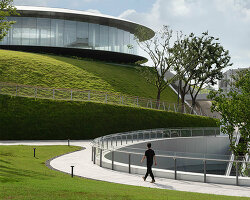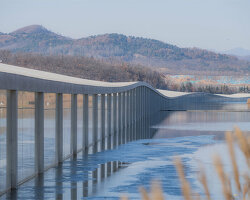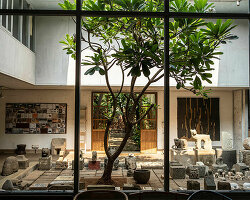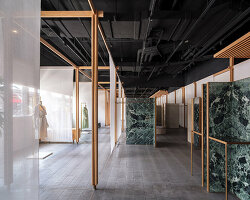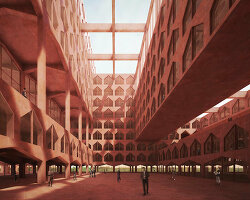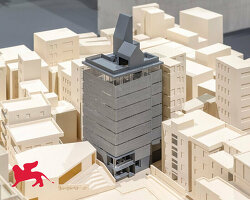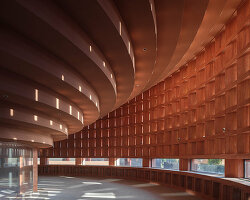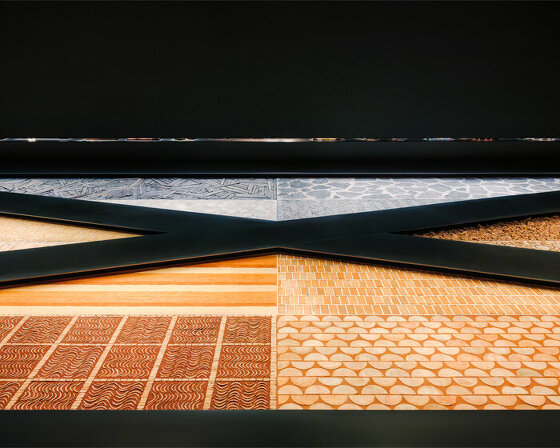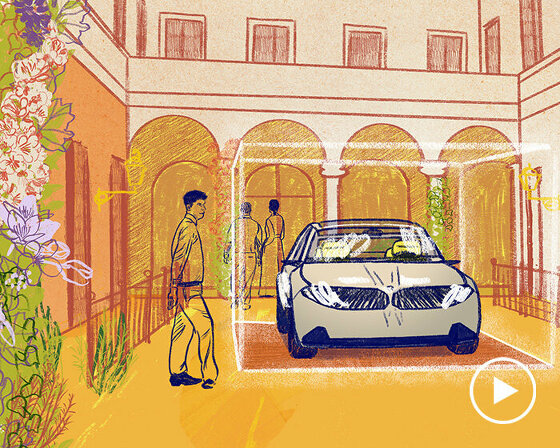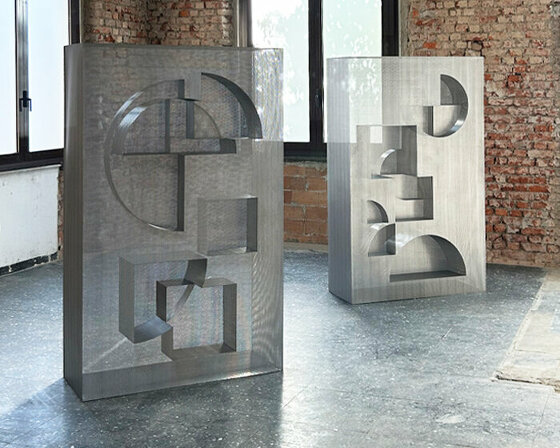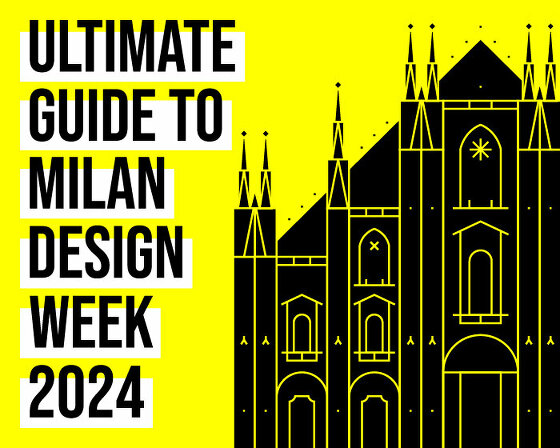interview with lyndon neri + rossana hu of neri&hu
portrait © designboom
lyndon neri and rossana hu both studied at the university of california at berkeley, where they each obtained their bachelor of architecture. lyndon went on to complete his master of architecture at harvard university; while rossana completed her master of architecture at princeton university. they worked together at michael graves & associates where lyndon was an associate and director for projects in asia, before co-founding their own practice in 2004. neri&hu design and research office is an inter-disciplinary international studio based in shanghai and london. spanning the areas of architecture, interiors, master planning and product design services, the firm is composed of a multi-cultural staff who speak over 30 different languages who are working on projects in many countries across the globe. neri&hu is a practice that strongly embedded in using research as a design tool, as they unfold each of their projects and their unique contextual issues. designboom interviews the duo on their biggest influences, what advice they would give to young architects, and finds out what they’re currently reading.
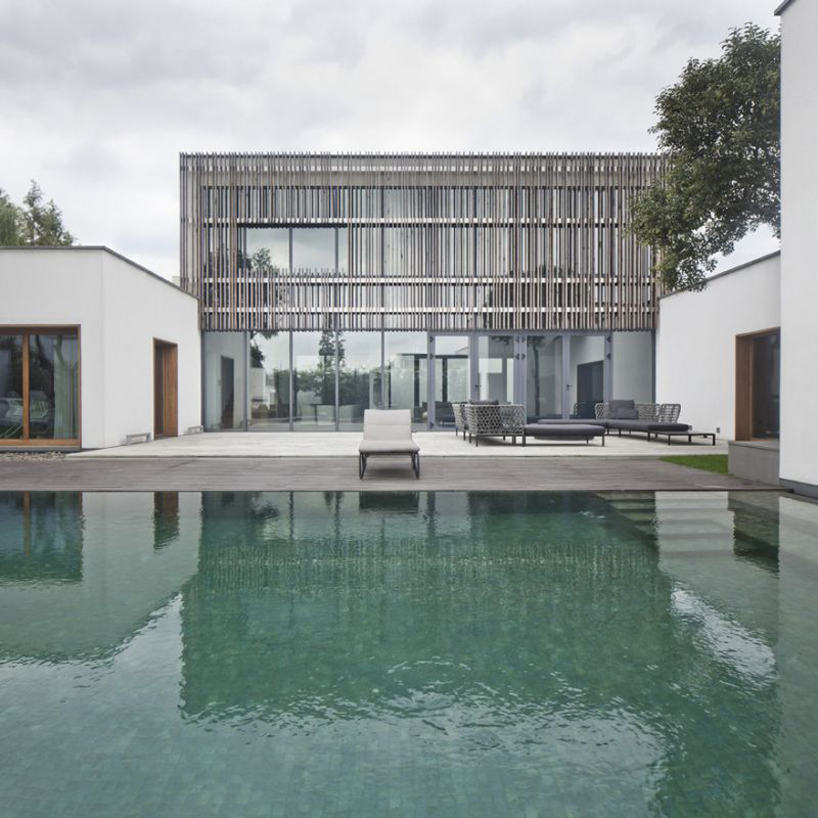
‘lee and chew house’ in shanghai, china (2012)
designboom: what originally made you want to study architecture? was this a passion for you through childhood, or something that came later on?
rossana hu: it’s different for the two of us. for me it came much later. for lyndon, it was — I think he was born to be an architect. for me I really struggled during my teenage years with not knowing what I wanted to do, but very early on I knew I loved the creative field. however, I am also quite realistic and I come from a chinese family you know, always questioned by your parents asking ‘how are you going to pay the bills?’. I was also very academically driven so I had considered maybe going to law school, engineering school, and sort of by chance I entered undergraduate as an architecture major and the very first studio, I just loved it, and I have been involved in architecture since.
lyndon neri: I have a typical asian upbringing, so there was absolutely no way you could even consider art. I loved to paint since I was young and I thought everyone could draw, like in a way everyone can walk and everyone can see. so naturally, when I learned realistic drawing I thought everyone else could do it. I always wanted to be an artist, and when I went to the states when I was fifteen, I had this aspiration that I could not tell my father whose only goal was for me to either be a lawyer or an engineer, so I lied to him. my first two years in college I was in a fine arts major and I was literally just drawing. then one day my father called me and said, ‘I think I might move to america to be closer to you guys.’ and that’s when I panicked, because I realized I had been lying to him all this time. so being a fine art major, I thought about how I could transfer to engineering. that was almost impossible, so architecture turned out to be a happy medium, wherein my father could understand and relate and thought of architecture as real-estate (laughs); and I lead him to believe that and he thought: ‘wow my son is this great, he is going to be great.’ this was in the 80s when real-estate was booming in america, and my dad thought, ‘oh wow, he is going to make a lot of money.’ little did he know that my kind of architecture was far from what he imagined it was going to be, but it’s been an amazing ride and he has accepted the fact that I lied to him, but that I’ve found my passion. 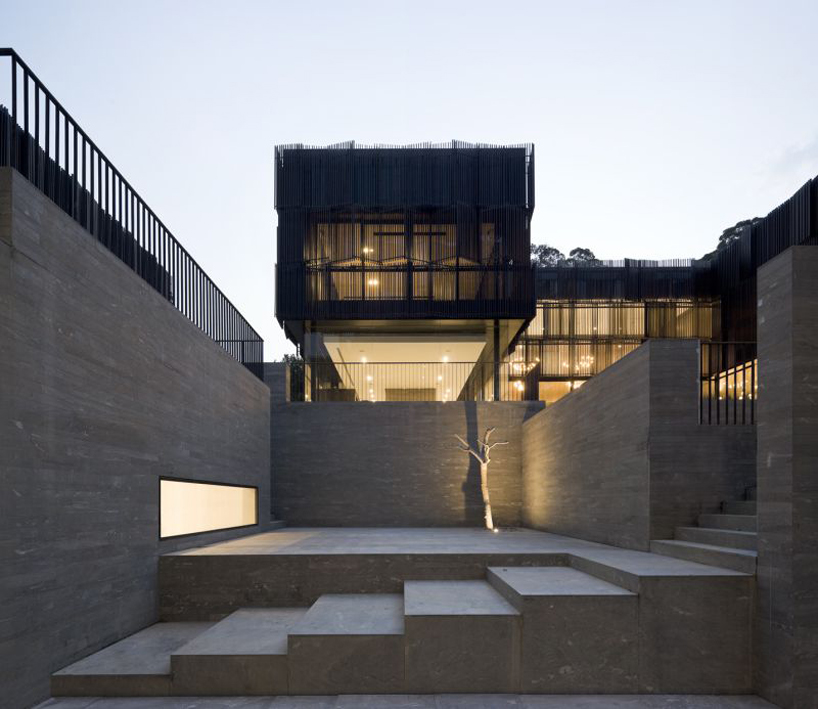
‘cluny house’ in singapore (2012)
DB: what do you think to date has had the biggest influence on your architectural practice?
RH: I would say the location — where we are. I would say the conscious effort of establishing the office in shanghai at a time when it was not yet fashionable to be in shanghai. I think the location where we are and all the people that surround us are really the most influential things. that includes the clients who come to us, that includes our image as an international firm working in shanghai, as well as the staff who come and work with us. many of them actually move from different parts of the world to shanghai for the first time to work together in this office that we share.
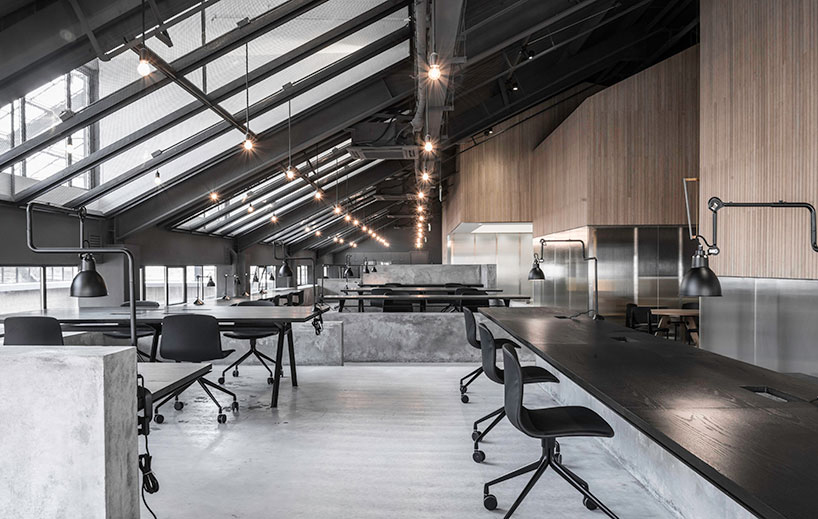
‘flamingo shanghai offices’ in shanghai, china (2014)
image © dirk weiblen
see more about this project on designboom here
DB: your practice has often been noted as having a kind of modern chinese aesthetic. how would you describe this style, and how you express this through your work?
RH: we don’t really consciously confine ourselves within any sort of definable style. I think it’s just by virtue of who we are, our identity as chinese diaspora and having gone to the US for most of our schooling. naturally, we live in the contemporary times so our design style is contemporary, it’s very modern, and that’s why the chinese modern style. what we often say is that we don’t think we are the ones to define our own style. it is really for the viewers and for the people who are looking at our design to tell us how they would define it. but, it’s just a very natural expression of who we are, and I think design is such that you know, it is an outward manifestation of what we have within us.
LN: I think there is the phrase of the french philosopher antoine de saint-exupery he once said: ‘we do not aspire to be eternal beings, we only hope that things do not lose (their) meaning’. rosanna and I try to pursue new meaning in a lot of the things we do, and naturally, instinctively, that expression which comes out of our work is very much our background. being born in asia, chinese diaspora, trained in the US, now back in china… there are a lot of issues there and a lot of obsessions that you see in our work, but most of them are really just an expression of trying to find new meaning and authenticity in this seemingly chaotic world.
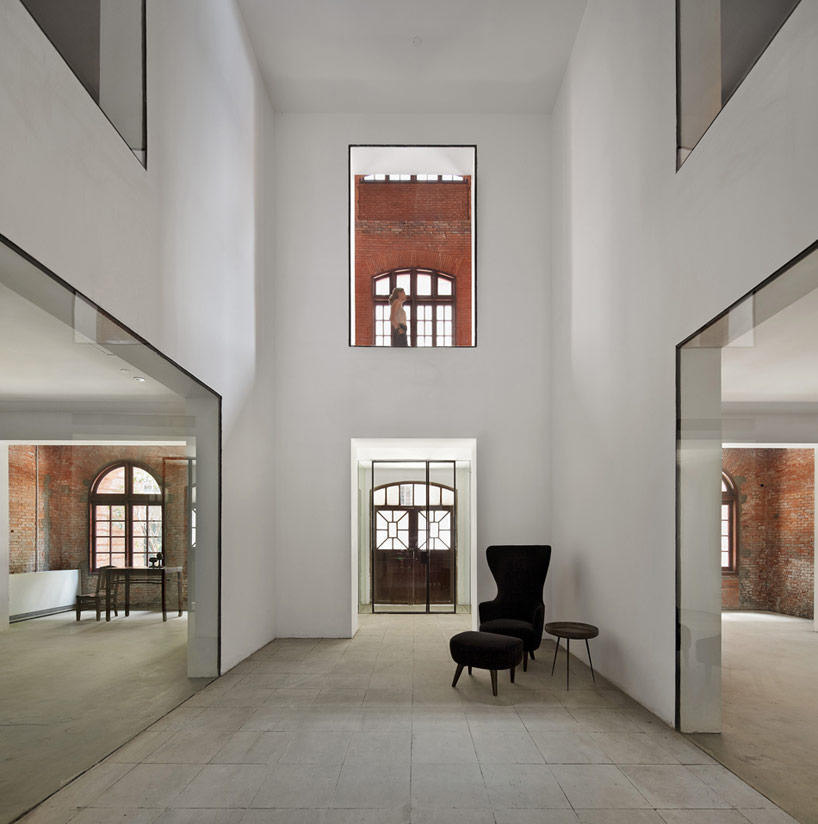
design republic design commune in shanghai, china (2012)
image © pedro pegenaute
see more about this project on designboom here
DB: what is currently influencing your work outside of architecture?
LN: we both love to read books, we love film, we love to eat, we love to cook… I believe life can’t be so singular, especially today when you can reach out to a lot of different things for inspiration. we love to draw, we love to paint. I was a painter before I became an architect, so that’s continually our world, that’s the way it surrounds us.
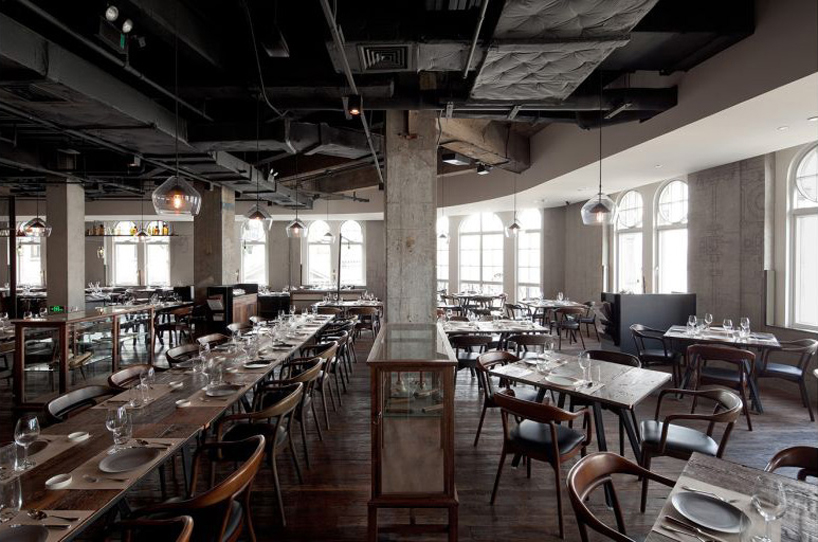
mercato italian restaurant at three on the bund in shanghai, china (2012)
DB: what are you currently reading?
LN: you know it is interesting, I was reading a rollingstone’s interview on susan sontag that got reprinted, it’s amazing. she’s an amazing thinker. I keep telling her (points to rossana) that she reminds me of rossana. the way she thinks is very logical. so, in order to understand my wife I read susan sontag (both laughing) she’s obviously an amazing help!
RH: both of us have been also interested in poetry, (mark) strand is one, and I’ve been recently revisiting samuel beckett — his novellas — and of course I read his plays.
LN: you read ‘the sense of an ending’ right?
RH: that was like two years ago, but that’s a very very good book, ‘the sense of an ending’. so going back to some classics, as well some newer work… (haruki) murakami and also going back to some modern classics, chinese literature, I am reading shen tsung-wen. he has a collection of journals where he travelled back home on a river boat, and that journal, actually it’s not a journal, it’s an exchange of letters with his wife who was back at home — that series of letters is really really interesting. he described his whole journey, you know from one end of the river to home, and a lot of details about that that whole journey are quite interesting because there is a lot of kind of local flavor, and covers many different places of china. very, very inspiring.
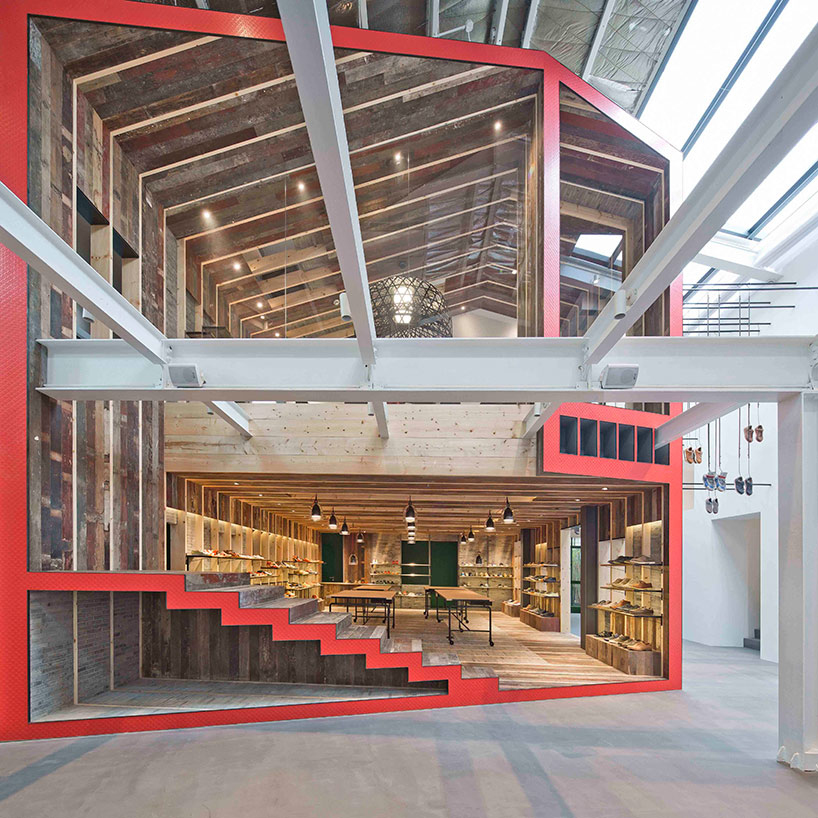
‘camper showroom and office’ in shanghai, china
see more about this project on designboom here
DB: of architects from the past and the present, who do you have a particular appreciation?
LN: it goes without saying, obviously it sounds like a cliché, but le corbusier is still resonating within our practice. obviously we love a lot of adolf loos’s work. we love carlos scarpa and his attention to detail. among the newer architects, peter zumthor’s precision in materiality and proportion is just amazing. obviously (kazuya) sejima’s play on dematerializing material intrigues us. david chipperfield (rossanna adds). there are a lot. you know rafael maneo was my thesis advisor at harvard, and his academic rigor to be, to be precise in architecture language has been with us all these years.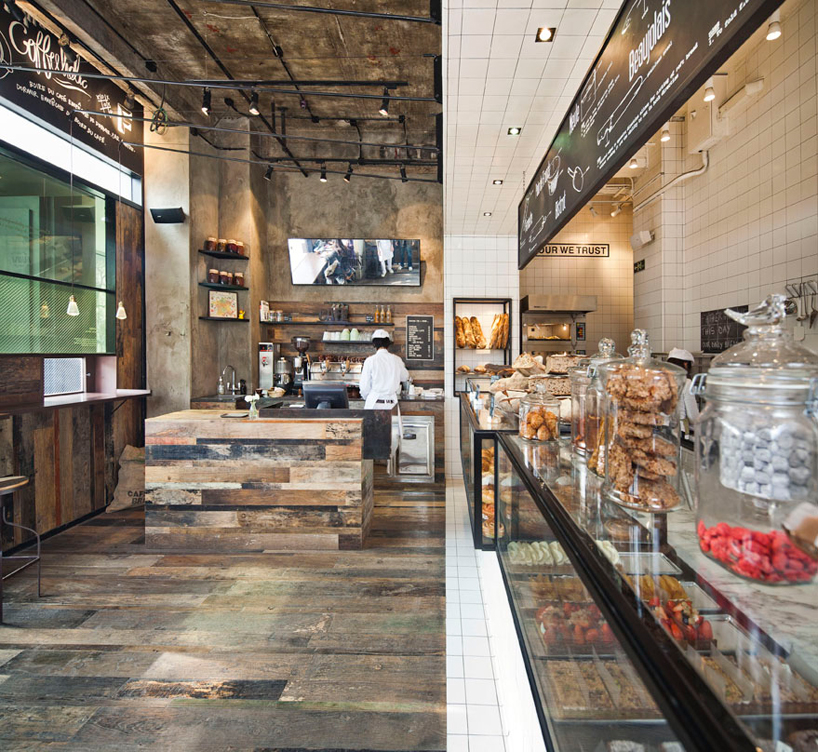
‘farine’ boulangerie in shanghai, china
the architects share their advice with the young
video © designboom
DB: do you have any advice that you can instill on young creatives entering the design or architecture field?
LN: this may sound like a cliché, but follow your instinct, follow the passion of your heart. I mean it sounds like a cliché, but you have to love what you do, because in difficult times you will know that when you look back you can say even if the client didn’t pay, even if the project was criticized to the ‘T’, and even if people do not like the project; at the end of the day if you are exploring issues that you are passionate about, it will last you a long time.
RH: yeah, and I would say there is no shortcut, and we really paid our due, earlier on and even all the way until now. there really is no shortcut. not just in our own case, but I think in a lot of our mentors, the people who we really respect within this field. the more you know, the more you realize everyone works really really hard to get to where they are. and uh, I feel like young people today want to find that shortcut, and so they want to, you know, go to school for a shorter time, they want to intern for a shorter time or maybe completely delete that internship, work for a short time and just (snaps fingers) very quickly want to come out and do their own thing. I think be patient and don’t try to find the shortcut, but pay your due and work hard.
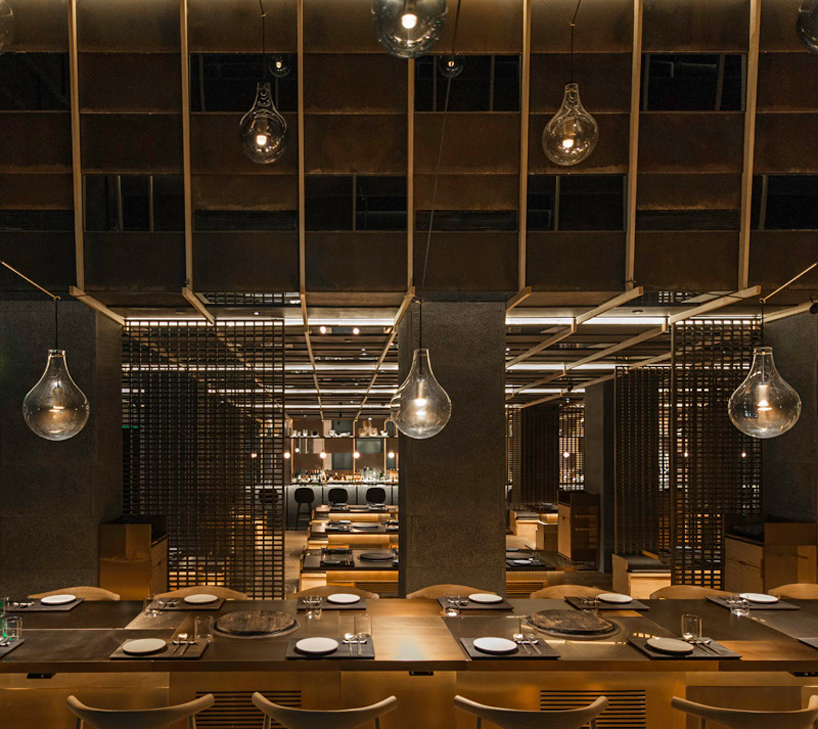
chi-q korean restaurant at three on the bund in shanghai, china (2014)
see more about this project on designboom here
DB: alternatively, what has been the best or worst advice you have been given?
RH: that is a very good question.
LN: the best advice was from my father who has always told me, ‘do not believe all the things that are written about you. when you are hailed by the public to another level, be humble, but at the same time when you are criticized by the media or the press you also do not necessarily need to believe it so that it becomes… it let’s you down.’ so I think at the end of the day, my father’s word about humility has always resonated in me.
RH: yeah, I would say the same. I was trying to think which sort of teacher or ex-boss has really influenced me. definitely everyone that I work with has taught me something, but I would still have to say my parents maybe instilled in me a very strong sense of work ethic, as well as ethics in general. I think that’s something that’s very much missing today. to do good work I think first you have to be a good person, and so work and life, particularly in our field is very much intermixed. and so, I think to be true to yourself both in life and at work, and in design as well.
LN: we also worked for michael graves for a long time and you might not like his aesthetic, but one thing he did and he did very well, is his multi-disciplinary rigor in the way he practiced architecture; and both rosanna and I have him also to thank for being focused on not just architecture with a big ‘A’, but to also be attentive with interiors, product design, graphic design, and the whole interdisciplinary approach, bringing renaissance and making it relevant again to today’s work.
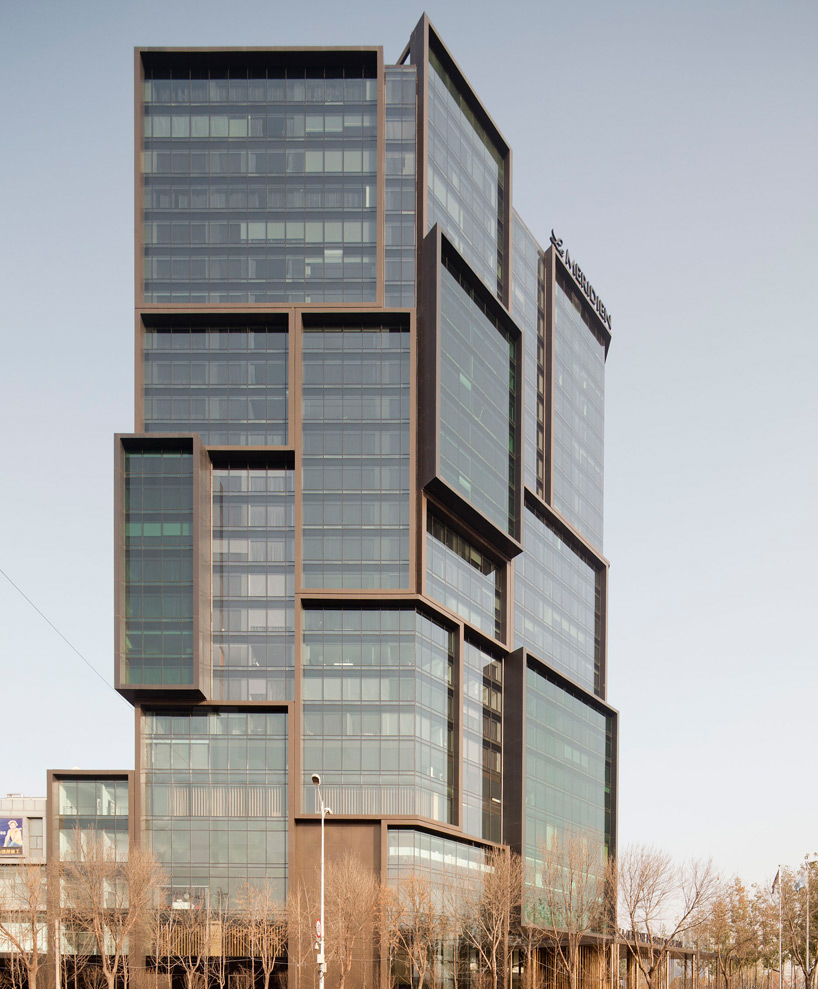
‘le meridien’ hotel in zhengzhou, china
see more about this project on designboom here
DB: is there a motto that you live or work by?
LN: I think I already said it, which is antoine de saint-exupery: ‘we don’t aspire to be eternal beings, we only hope that things do not lose its meaning.’ if you work with us, you will see. I think people in our office know it very clearly, it is not about the biggest tower that we want to create, it’s not the biggest bank. we are hoping that even the small objects we do, the small spaces we create, that people find meaning in that because that lasts. I think the temporary bigness, or the temporary grandness of some of these projects, if they don’t have meaning they’re nothing.
ARCHITECTURE INTERVIEWS (263)
NERI & HU (48)
PRODUCT LIBRARY
a diverse digital database that acts as a valuable guide in gaining insight and information about a product directly from the manufacturer, and serves as a rich reference point in developing a project or scheme.
